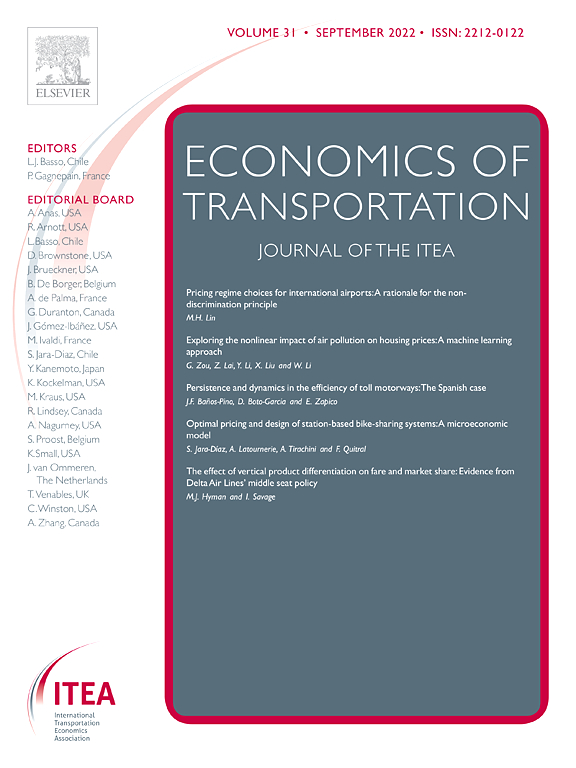Competitive framework for an integral interval timetable in long-distance passenger rail services

The decision to centrally organize long-distance passenger rail services in the form of an integral interval timetable (IIT) in the same way as short-distance passenger rail services offers the opportunity to induce competition in the market for long-distance passenger rail services. IIT train paths could be allocated in such a way that different train operating companies operate a long-distance route in turn.
In their new article, Christina Brand and Gernot Sieg use an industrial economic model to show that trains in a route monopoly are more punctual compared to a route duopoly, but ticket prices are higher. This result is due to the fact that intramodal price competition in a route duopoly can be at the expense of quality in the form of punctuality, and that a route monopolist can use the assigned personnel and (replacement) rolling stock more efficiently.
Against the background that punctuality is a basic prerequisite for a functioning IIT, IIT train paths should consequently be bundled for allocation in such a way that density advantages can be generated and price competition does not cause negative effects on quality. Instead of "competition in the market", there could be "competition for the market", i.e. competition for the train path bundles. The article is published in the journal Economics of Transportation.


